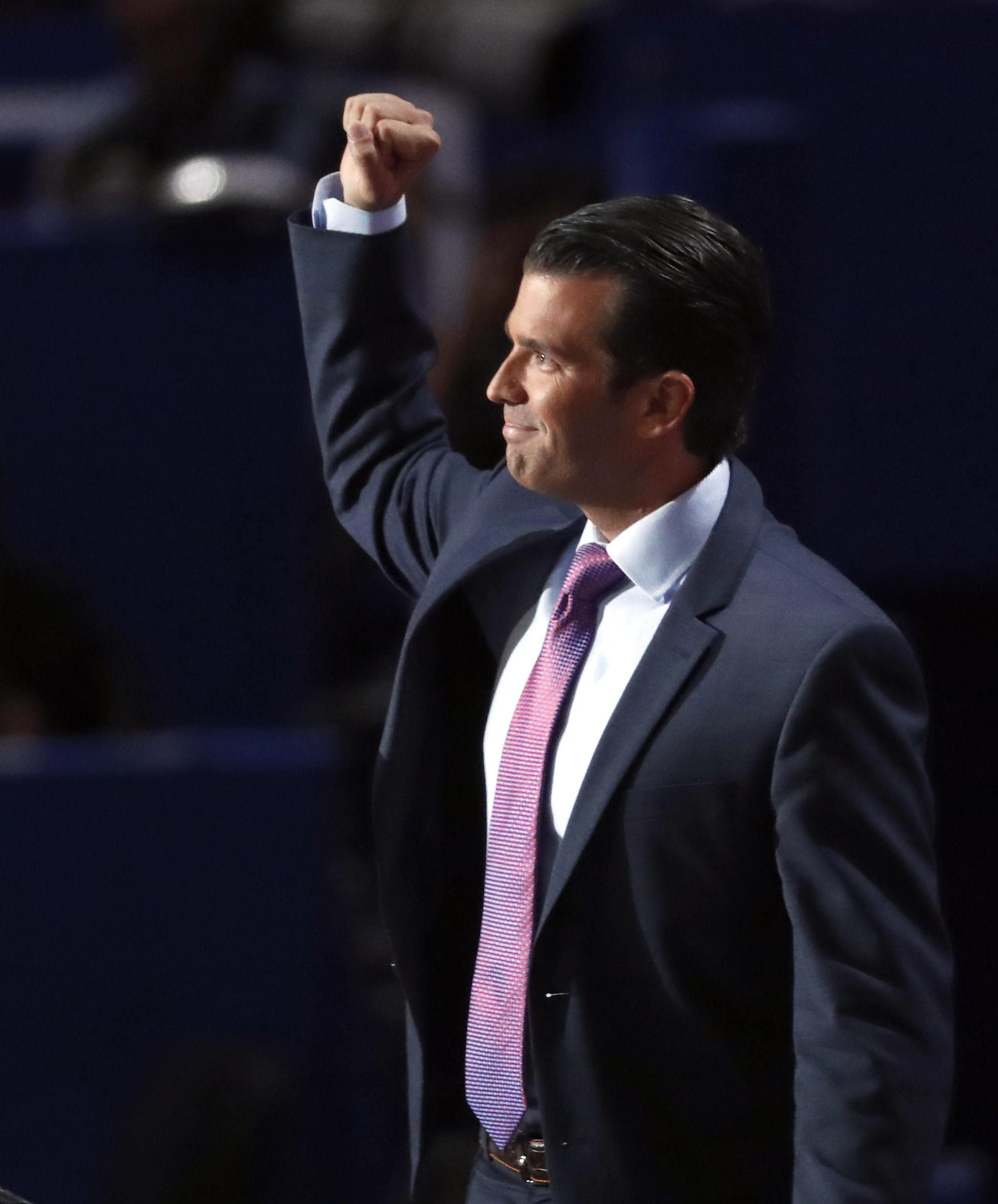Donald Trump Jr., the son of President Donald Trump, avoided answering tough questions about an important telephone conversation he had with his father by citing attorney-client privilege.
Neither Trump is actually a lawyer.
During a closed session before the House Intelligence Committee, Trump Jr. refused to answer questions about a conversation he had with the president in July regarding a June 2016 meeting with a Kremlin-connected lawyer, according to The New York Times. His argument was that, because both he and his father had lawyers present during the phone call in which they had that conversation, the details of what they discussed were protected by attorney-client privilege.
“I don’t believe you can shield communications between individuals merely by having an attorney present. That’s not the purpose of attorney-client privilege,” Rep. Adam Schiff, D-Calif., told Politico. Schiff is the Ranking Democrat on the House Intelligence Committee and has been an outspoken critic of the Trump administration.
Trump Jr. wasn’t nearly as protecting of Hope Hicks, a White House aide who has worked with Trump ever since the start of his 2016 presidential campaign. Although he claimed he did not speak directly with his father after learning that there had been news reports about his June 2016 meeting, he admitted that he had spoken to Hicks, according to CNN. Trump Jr. also denied that he talked with his father about the June 2016 meeting at the time.
“The fact that each is fully cooperating is consistent with the way the White House has proceeded throughout the series of inquiries,” White House lawyer Ty Cobb told CNN on Wednesday.


